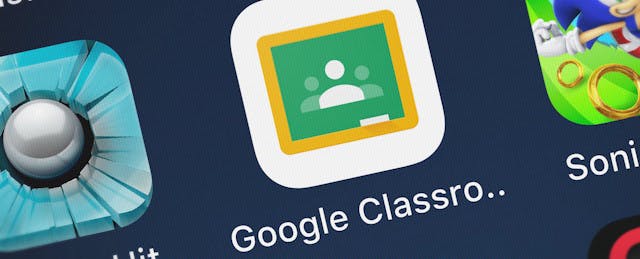Getting acquired by the likes of Apple, Google and other “Big Tech” firms is often the dream of entrepreneurs (and their investors). Yet in the education industry, these deals have been few and far in between, especially as many of these companies have decided to build their own edtech tools.
But this week, Google acquired Workbench, a Baltimore-based company that provides an online library of lessons and projects, organized by subject and grade level, that educators can use in their classrooms. It also offers a programming interface where students can do coding exercises and even control bluetooth-connected devices that are integrated with the platform.
The two companies are no strangers. In early 2018, Workbench integrated its tool with Google Classroom, which allows educators to assign Workbench projects to students, and track, review and assess their progress. Claiming more than 30 million users, Google Classroom is currently one of the most widely used online educational tools, which lets teachers, students and parents manage class assignments, quizzes and discussions.
In a blog post, Workbench’s founder Chris Sleat wrote: “Google’s tools and devices are already a significant part of how schools and universities are using technology to impact student learning. With Workbench, these educators will gain access to an innovative learning platform that provides lesson and project authoring, sharing and discovery capabilities.”
First released in 2015, the team behind Google Classroom initially focused its product development efforts to improve assignment workflow, says Jonathan Rochelle, a product management director at Google, in an interview. “But we also learned, in the background of our user research, was the complexity and time it takes to find great lesson content.”
There are no immediate changes planned for Workbench’s growing library of lesson plans, says Sleat, who is now a product manager at Google. What will change, though, is the company’s revenue stream, a two-fold approach that relied on third-party vendors to pay to list their content and sell hardware, and on districts that paid Workbench for a private library. There are no established plans for how this business model will change—but Rochelle states it will no longer operate on its previous model.
Rochelle and Sleat declined to share details around Workbench’s users. According to The Baltimore Sun, the company claimed users in roughly 10,000 schools as of October 2017.
Rochelle describes the deal as part of a deliberate and “slow effort to explore how we provide a platform where educators and find and share great lessons.” But he cautions against the impression that Google’s educational (and acquisitional) efforts are now focused purely on content.
Financial terms of the deal were not disclosed; Rochelle suggested the transaction amount would be too small to appear in the next earnings call for Alphabet (Google’s parent company). Founded in 2013 (and originally named cwist), Workbench has raised $3 million in funding.
This marks just the second publicly-disclosed “edtech” acquisition by Google in its history. In 2015, it acquired Launchpad Toys, a storytelling tool designed for children to create their own cartoons.


